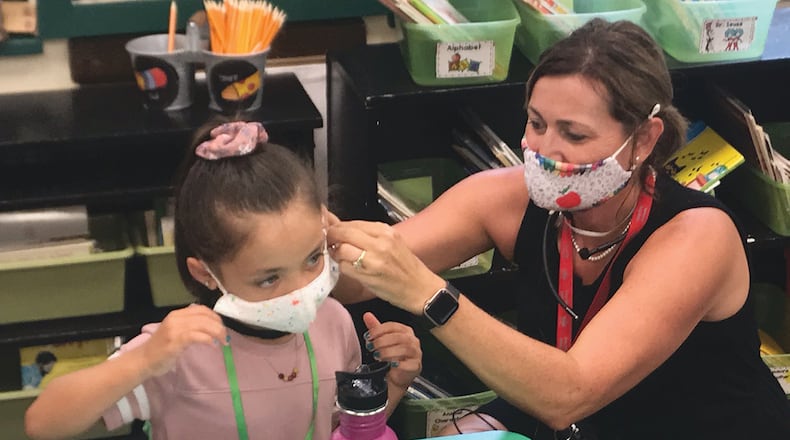State Sen. Teresa Fedor, a Toledo Democrat, and Sen. Nathan Manning, a North Ridgeville Republican, cited the stress that students, teachers and families are under during a turbulent school year.
“Any pressure we can relieve so that the focus is on teaching and learning, rather than testing and evaluating, will help our students succeed in the long term,” Fedor and Manning said in introducing the bill.
State K-12 testing has been a hot topic for years. The bill would eliminate those standardized tests that are only required by the state. It also would require the Ohio Department of Education to seek a waiver for the remainder of tests that are federally required.
The U.S. Department of Education has thus far declined 2020-21 testing waivers, but Fedor suggested that could still change, especially pending the outcome of November’s election.
Because scores on several state tests are a primary pathway to high school graduation, the bill also would allow students to meet graduation requirements via their final course grade in the associated class.
Some of these provisions simply extend protections that were put in place this spring when all school buildings closed. But Ohio schools are all over the map this fall — from fully remote to fully in-person.
“We believe there will be continued COVID-19 disruptions throughout the course of this school year which will adversely impact the availability of reliable … student growth measure data,” Tony Podojil, executive director of the Alliance for High-Quality Education, said in Senate testimony. “We also have concerns regarding the administration of state assessments for students attending school virtually or via a hybrid model.”
Several major groups have testified in support of the bill at its first two hearings — the agencies representing Ohio’s school boards, superintendents, treasurers and principals; as well as both of Ohio’s teachers unions. In addition to Podojil’s group, which largely represents suburban schools, the bill also got support from The Ohio 8, which represents Ohio’s large urban schools, including Dayton.
Credit: Jeremy P. Kelley
Credit: Jeremy P. Kelley
A few groups have testified in opposition to the bill. Ohio Excels, a prominent business coalition focused on education, said it “strongly supports” continuing to give state tests in 2020-21, saying students' wide variation of experiences in these months make testing data more important than ever.
“This is not about pointing fingers or assigning blame,” Lisa Gray, president of Ohio Excels said in Senate testimony. “Instead, having statewide assessments will give policymakers and educators a consistent view of student performance.”
Fedor argued that local diagnostic tests are more effective and give educators more timely feedback to boost that student performance. She argued that years of data show the state standardized tests are more a measure of wealth and poverty.
“In my opinion, legislators need a security blanket, and standardized tests and our failed school accountability system have been that security blanket,” Fedor said. “It’s time to take the blanket away and trust educators and allow the school districts to do their job.”
The Fordham Institute, an education reform group that sponsors multiple Dayton charter schools, took a mixed approach, agreeing with the bill’s moves not to issue report card grades or use student growth in teacher evaluations, or penalize schools for low scores in 2020-21.
But Chad Aldis, Fordham’s vice president for Ohio policy and advocacy, testified that state exams shouldn’t be canceled. He suggested parents need “objective” information from state testing to know whether their children need help. And he said broad test data could help the state understand which districts' strategies during the pandemic period was more or less effective.
Fedor said some amendments to the bill are likely, including one that would allow in-school administration of the ACT or SAT college entrance exams to continue. Under the bill, no public schools would see their students newly eligible for 2021-22 state-paid private-school vouchers due to their school’s performance. That has been a tense topic for years and could draw proposed amendments.
“It’s a very open process. We’re listening and talking to one another because we’ve never to deal with (a pandemic) in our lifetime,” Fedor said of the bill as a whole. “We’re trying to just take the best elements to have the best school year that we can.”
What Senate Bill 358 would do
-- Eliminate state testing for grades K-12.
-- Halt state school report card for next 2 years.
-- Address graduation requirements and teacher evaluations.
About the Author


